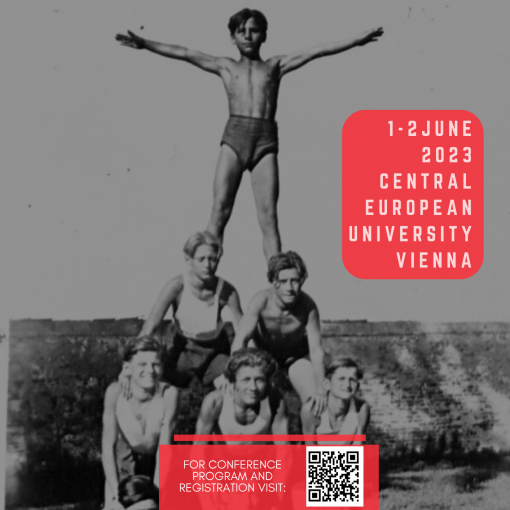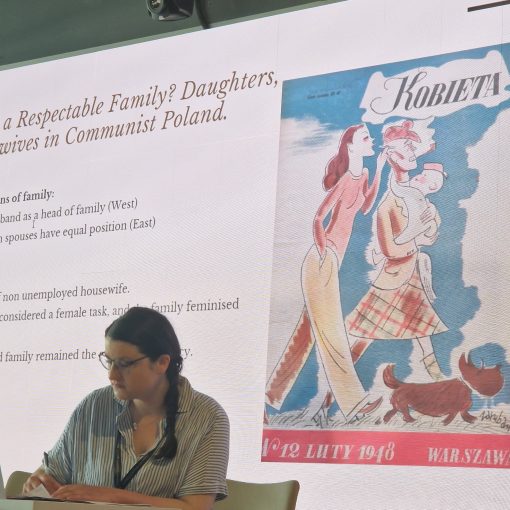Participation, Knowledge Production and Collaboration
Prague, December 1-2, 2025
Leibniz Institute for the History and Culture of Eastern Europe (GWZO)
in cooperation with the Institute of Czech Literature of the Czech Academy of Sciences and the Innsbruck University
Venue: Institute of Czech Literature of the Czech Academy of Sciences, Na Florenci 1420/3, Prague, Czech Republic
The views and agency of migrants and refugees often remain invisible in the paper trail of the governments that see them through the reductive lens of control and securitization. Other actors, such as humanitarian organizations, may treat them, in the words of the anthropologist Liisa Malkki, as “speechless emissaries” whose own histories, cultures and perspectives were erased in favor of the humanitarian standardization of the helpless victim. Media reports and public discussions often give space to experts to discuss migrants rather than letting migrants speak for themselves, often resulting in a flattened and distanced, if not stereotypical, representation. Furthermore, migration and refugee experience remains poorly integrated in historical master narratives and textbooks which privilege stability over mobility and see migration through the prism of the nation, devoting more attention to national exiles. The absence of the voices of migrants contributes to the imagination of a clear border between the citizens (and the nation) and migrants.
The importance of including the voices, perspectives and agency of migrants in the public space, in media and education has already been widely recognized. Numerous projects have attempted to involve migrants in collecting documents, recording interviews or in interventions in public space. So far, these efforts have been stronger in countries with a developed debate about the transformation towards immigration (or even post-migration) societies. Reading archives against the grain, scholars researching the history of migration have excavated the voices of migrants and refugees in order to reconstruct their agency and views. They have paid attention to documents such as petitions submitted to higher authorities, or letters and ego-documents.
The workshop brings together scholars and practitioners engaged in making archives of migration or reading them from a fresh perspective. It examines whether and how to confront the hegemonic construction of documentation and support alternative and diversified repositories of knowledge. It understands archives of migration as a citizen science effort which – in different ways – involves migrants and refugees, humanitarians and other social actors in the production of documentation, defining cataloging standards and archiving rules and managing access. We aim to assess the sustainability of such archives and their longer-term effect in the public space.
We invite contributions of different types (research papers, project presentations or posters) on themes which can include:
- Critical reflection on existing projects from theoretical, methodological and practical perspectives,
- Archives of migration as citizen science projects: involvement of migrants and refugees, as well as of NGO workers and other actors,
- Developing connections between new readings of historical archives and current projects of archives of migration,
- Supporting archives of migration in countries not perceived as immigration societies, especially in post-communist societies,
- Interdisciplinary and transnational cooperation and networking.
The workshop will include a lecture and book presentation by Peter Gatrell and Katarzyna Nowak.
The workshop will be conducted in English.
Within the available means, the organizers will provide travel support and accommodation.
Please send the abstracts of up to 300 words with a short bio (150 words) to binova@ucl.cas.cz by September 1, 2025. Questions can be directed to Michal.Frankl.ext@leibniz-gwzo.de.


